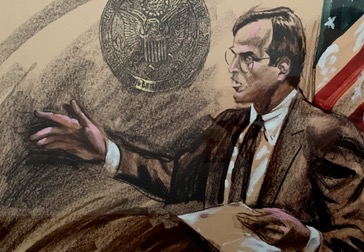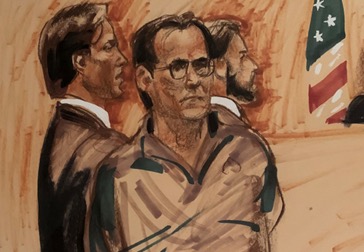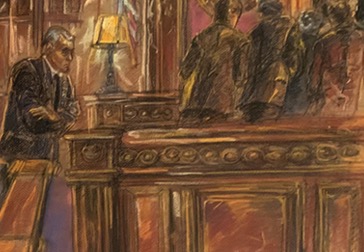Prosecutorial Misconduct
Our system of criminal justice, though largely inherited from Great Britain, has historically been more vulnerable to corruption by prosecutorial misconduct than that of our colonial antecedents. This has been variously attributed to the fact that prosecutors in our system, unlike that of the Brits (where the barrister alternates between prosecution and defense functions), have tended more and more to work exclusively on the side of law enforcement. This has tended to skew professional attitudes by fostering a myopic perspective — one aimed at obtaining convictions at any cost. Where the British counterpart tends to measure his success in separating the guilty from the innocent, and prides himself on his role in furthering the dignity of the judicial process, his American counterpart is more likely to measure his success in terms of conviction rate. Success thus measured, in turn, often serves as a means to advancing one’s legal career and, perhaps, one’s political future as well.
Compounding this problem, is the trend of appellate courts in recent years to overlook prosecutorial misconduct by relying on the doctrine of “harmless error.” Under this analysis, if the misconduct did not substantially contribute to the conviction, the courts usually will not reverse that conviction. Further adding to the problem in most cases in the United States — even if the court were to determine that the misconduct substantially affected the verdict, the remedy available to cure any such error is a new trial. In the UK, an appellate court’s finding of prejudicial error carries a far more Draconian result for the prosecution — discharge of the defendant. For all of these reasons, instances of prosecutorial misconduct is comparatively rare in the British system. Conversely, and sadly, it is all too common a phenomenon in our American criminal justice system, at both the state and federal levels.
While the appellate courts have put up many roadblocks that frustrate efforts of the diligent defense attorney to right the numerous wrongs tolerated by our system, there are still many opportunities for an aggressive advocate to apply judo-like principles and gain strategic advantage by using a prosecutor’s unbridled zealotry against him. This blog will explore those opportunities and describe effective defense strategies for combating bad behavior by prosecutors.
By: Bruce Udolf








